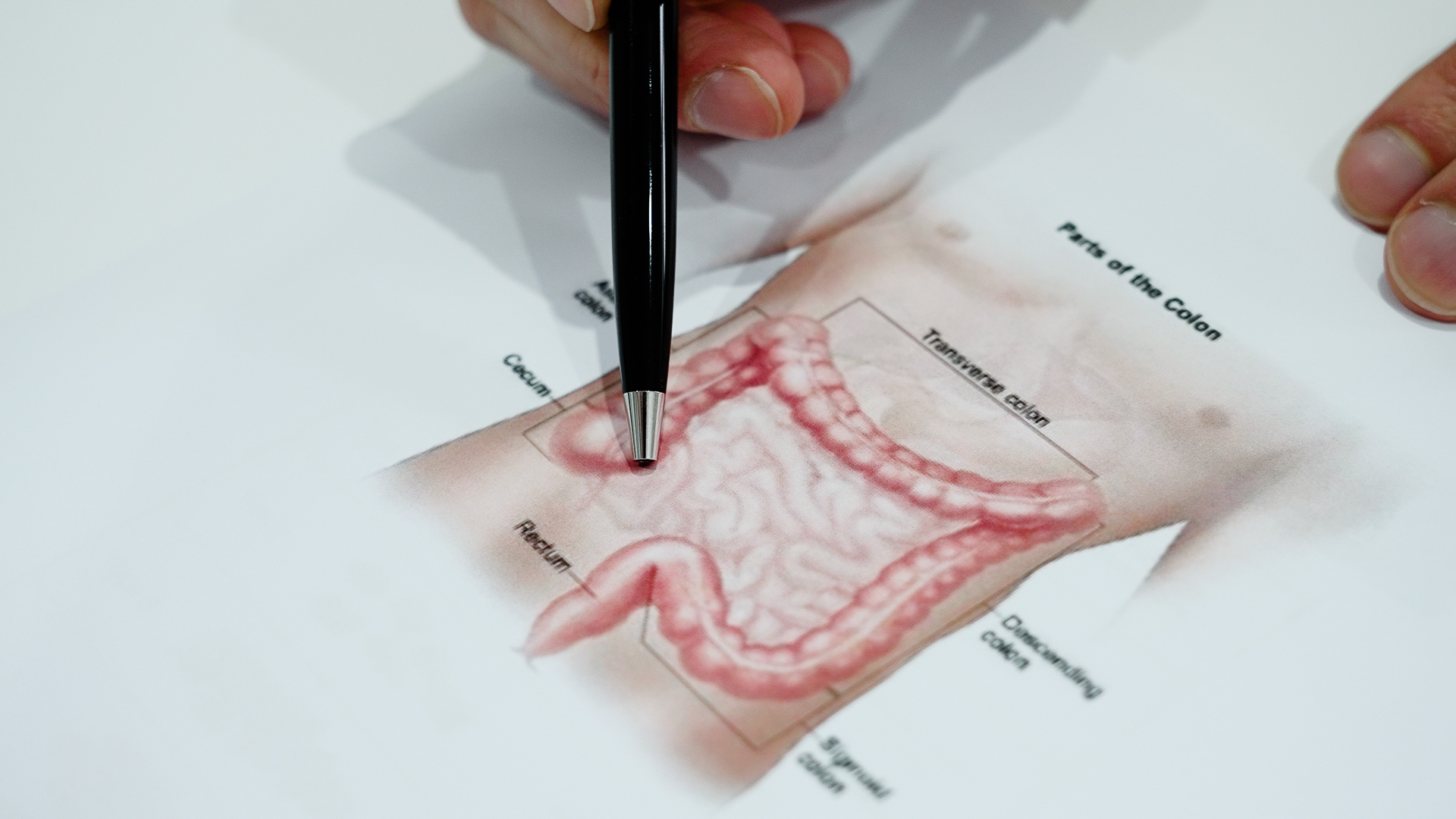Paediatric
Gastroenterology
Paediatric Gastroenterology at SAPAN Health Adelaide
What is a paediatric gastroenterologist?
A paediatric gastroenterologist is a doctor who specialises in diagnosing and treating disorders of the gastrointestinal system and liver in children, from newborns to teenagers.
A paediatric gastroenterologist is specially trained to perform endoscopy and colonoscopy procedures in children.
What is the gastrointestinal system?
The gastrointestinal system is the name for the very long tube that connects the mouth to the anus. When food is eaten, it passes down the oesophagus to the stomach, where acids and enzymes convert it to a thick liquid called chyme.
Chyme passes from the stomach to the small intestine, where nutrients from food are absorbed into the bloodstream.
The remaining waste passes into the colon, also known as the large intestine, where water is absorbed and the waste forms solid faeces.
Finally, the faeces pass through the rectum and out of the anus.


Common paediatric gastroenterology symptoms
A child may experience some of the following*:
- A child may experience some of the following*:
- Long term, unexplained abdominal pain
- Difficulty swallowing
- Extreme or unexplained weight loss
- Persistent diarrhoea
- Vomiting
- Constipation
- Bloating and gas
- Nutritional deficiencies, including iron
- Changes in tooth enamel
- Heartburn or regurgitation
- Poor growth
- Loss of appetite
- Diarrhoea with blood and/or mucus
*This list is not exhaustive and is just a few examples of symptoms that may or may not be present in your child.
Common paediatric gastroenterology problems:
COELIAC DISEASE
Coeliac disease is an abnormal immune reaction to eating gluten, a structural protein found in wheat, barley and rye. This causes inflammation to the lining of the small intestine that may lead to medical complications. The inflammation may also prevent the absorption of some nutrients including iron and vitamin D.
INFLAMMATORY BOWEL DISEASE
Inflammatory bowel disease (IBD) is a series of auto-immune diseases involving the gastrointestinal system, including Crohn’s disease and ulcerative colitis. They can often present with chronic diarrhoea with or without blood and mucus, unexplained weight loss, chronic abdominal pain or persistent iron deficiency despite adequate intake.
CONSTIPATION
Constipation is a condition that causes infrequent or difficulty passing bowel movements. Constipation affects one in three children, often during the introduction of solid foods, toilet training and the commencement of school. There are rare but serious causes of constipation that need to be considered before and during the treatment of constipation.
CHRONIC ABDOMINAL PAIN
Chronic abdominal pain refers to persistent or recurrent pain that lasts for at least three months. It may be caused by a number of different problems, such as Crohn’s disease, or a functional disorder that may not have a known cause. Investigation of underlying pathology is important before treatment is tailored to each individual child.
GASTROESOPHAGEAL REFLUX DISEASE
Gastroesophageal reflux disease (GORD) is also known as reflux. GORD is when stomach contents travel back into the oesophagus (or gullet), the tube connecting the mouth and stomach. The irritation may cause heartburn, poor growth, irritability, vomiting, frequent belching and hiccups.
LIVER DISEASE
Underlying liver disease can present in several different ways. Sometimes it can be incidentally found on routine blood tests, but it can also present with jaundice (yellow discolouration of the skin or whites of the eyes), persistent itch, easy bruising or if a medical specialist can feel the liver when pressing on the abdomen. Often children will require blood tests and imaging including an ultrasound to further investigate concern of liver disease.
FOOD INTOLERANCES AND ALLERGIC DISORDERS
Food intolerances and allergies are becoming increasingly common in Australia. They can often present with abdominal pain, change in bowel habit (constipation, diarrhoea or both), abdominal bloating, and sometimes poor growth. Sometimes it can also present with difficult swallowing or recurrent vomiting when eating meals. Children with other allergic conditions, such as asthma, eczema, hayfever or medication allergies, are at higher risk of developing allergic disorders of the gastrointestinal system.
How can a Paediatric Gastroenterologist help?
Problems with the gastrointestinal system can present differently in children compared with adults.
A paediatric gastroenterologist has specialised training and experience in caring for children’s digestive system and associated organs, such as the liver and pancreas. They can diagnose and tailor treatment for each child’s condition.
Paediatric gastroenterologists may work together with other health care professionals, including dieticians, speech pathologists, specialist allergy doctors and surgeons.
What to expect in a paediatric gastroenterology appointment
In the initial appointment at SAPAN, the paediatric gastroenterologist will assess a child to get a clear picture of their digestion and general health.
They will check the child’s weight, height and any blood test results, as well as carry out a physical examination.
The paediatric gastroenterologist will ask the parent or guardian and child about the child’s symptoms; what they involve and when they started. They will also ask about the impact of the child’s condition on family life and whether it is affecting their schooling or other day-to-day activities.
Parents or guardians and the child will have the opportunity to discuss any further concerns.
The paediatric gastroenterologist will make recommendations for further assessment or starting treatment.
Gastrointestinal Investigations
A paediatric gastroenterologist may use several investigative methods to understand a child’s health condition. These include:
- Abdominal ultrasound
- Barium meal and follow-through
- Barium swallow
- Upper gastrointestinal endoscopy or Colonoscopy
- Blood tests
- Stool analysis
- Breath tests
- Liver biopsy
- pH/impedence studies
The team at SAPAN has access to excellent pathology and radiology facilities at Ashford Hospital, Calvary Hospital, Flinders Private Hospital, Flinders Medical Centre, Lyell McEwin Hospital and Women’s and Children’s Hospital.
FIND OUT MORE
Contact SA Paediatrics and Newborns for more information or to book an appointment on 08 7081 9819.
A referral from your GP is required.
Useful links
Coeliac Australia: Coeliac disease in children.
SA Health: Constipation in children.
Crohn’s and Colitis Australia: Young people with Crohn’s and colitis.
Learn more about our team
OUR PAEDIATRICIANS
